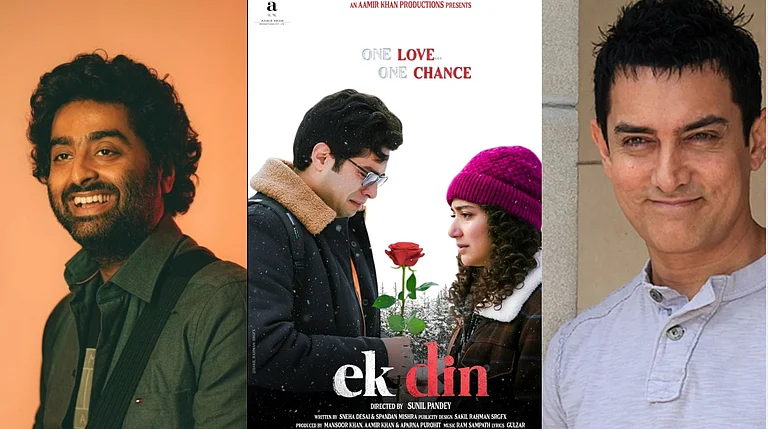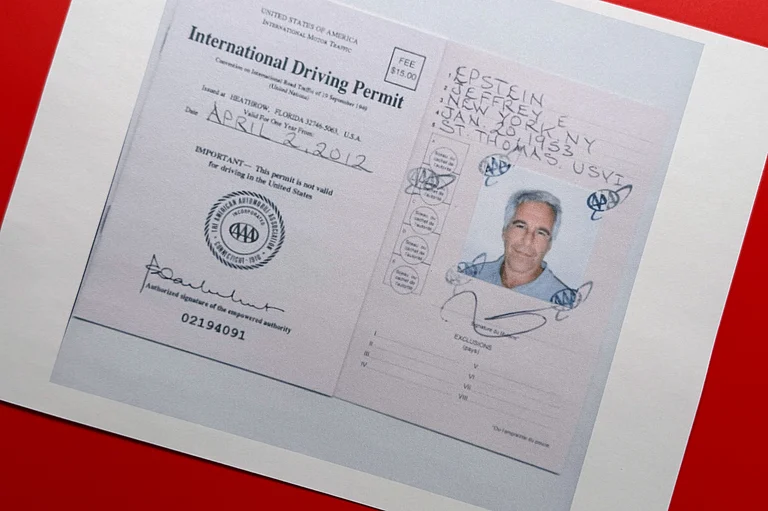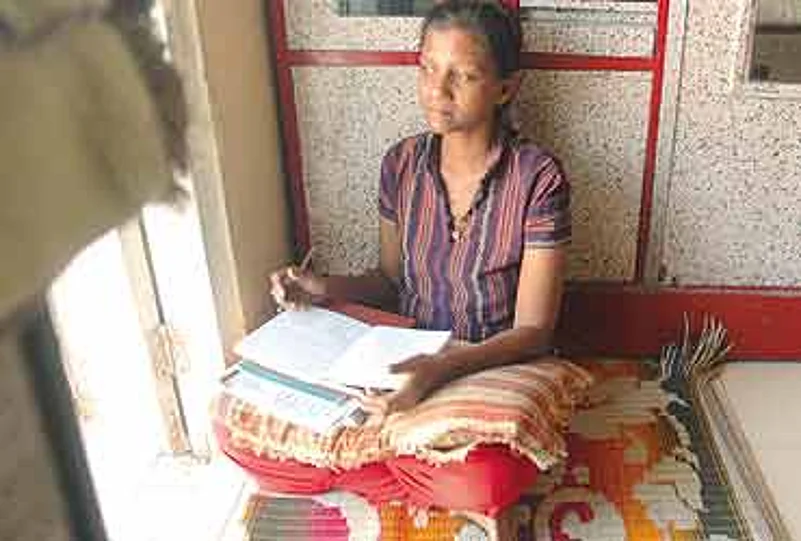
As a singer at an orchestra bar, Vaishali has it a little easier than the girls who work as waitstaff at the "ladies' bars", forced to join the customers for drinking sessions, or worse, ply them with sexual favours on worn sofas; and the girls who dance with customers at the city's "disco bars". But she has seen no less exploitation.
"I have been raped so many times," she says, "only the man keeps changing." On July 26 last year, when Mumbai was fighting its worst deluge, it all came to a head. Vaishali was raped by her 24-year-old son. "I had seen it coming," she says, silently wiping away a tear. It forced Vaishali to confront a few hometruths about her life—a life in which she had become an object of contempt even to her children. A few months ago, she moved house so that her son would never find her again. "I have distanced him from my life...so that I can still love him like a mother," she says, her chin trembling. Once her book is published, no bar in town will hire her. What she will lose is her livelihood of 18 years; what she will have gained is her voice.
There are other bar girls who are discovering, like Vaishali, that you need not pay with your soul for three square meals a day. Mina, Rupa, Salma and Asha are all part of the Sanman Mahila Manch, a bar girls' collective formed after the closure of last year. The 500-strong collective pools money from members, using scarce funds to help bar girls who are being harassed, to arrange bail for those who have been arrested, and to get ration cards, among other things. The manch also grants small loans to members for priorities like healthcare, children's education and finding other means of livelihood.
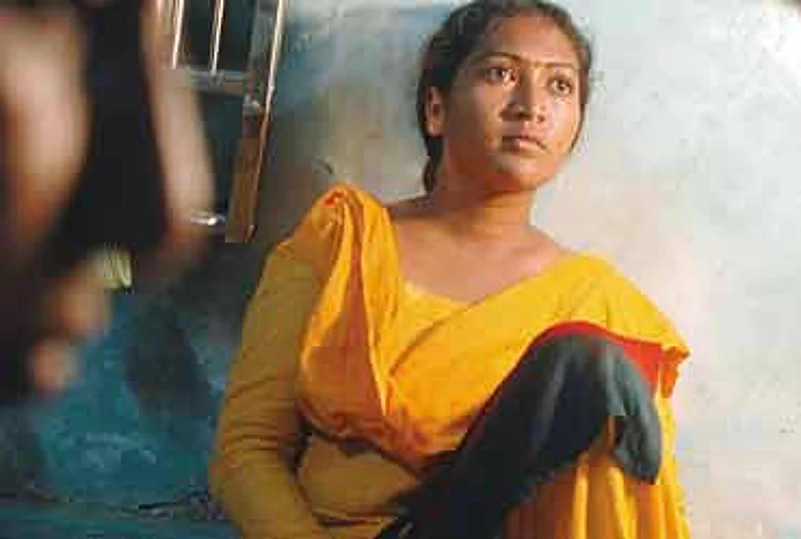
Mina: A dancer since she was 17. With a course in computers and another in social work, is finding her feet in a small crockery business.
Mina, 28, has been dancing since she was 17, earning up to Rs 15,000 a month. After she failed Standard X, she was married off. Two years and one son later, Mina walked out of a failed marriage, discovering soon after that she was carrying a second child. Family needs fast overtook income. Leaving her newborn daughter with strangers, Mina stepped into a dance bar for the first time. But when the bars closed, she had zero savings. Where did all the money go? "On clothes, makeup, sandals," she says.
With help from the manch, Mina has just completed a computer course and a six-month para-professional course, specialising in social work. Last year, with a Rs 4,000 loan from the collective, she started a crockery business, buying dishware wholesale and hawking it at discounted prices. Her little enterprise pulls in just Rs 2,500 per month, but she isn't going back to the bars now that they are set to reopen. Her two children are now studying at English medium schools. "Boond-boond se samundar banta hai," she says.
Rupa would agree. She was barely 15 when she became a bar girl after the death of her father. She's a mother of three girls, and she is expecting her fourth. This year, Rupa opened her first savings account. Her daughters study, like Mina's, at an English medium school. With the help of a loan from the manch, Rupa hawked fruit during Ramzan. Now she earns a living selling fancy sandals bought wholesale.
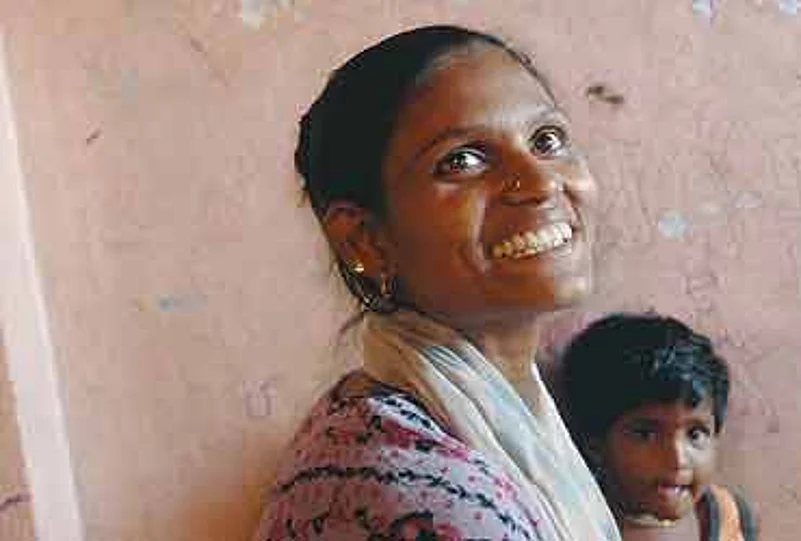
Rupa: A mother of three girls and expecting a fourth. Daughters now study in an English medium school. Makes a living selling fancy sandals, which she buys wholesale.
At 13, Salma's parents cut her off after she married against their wishes. The boy turned out to be a drug addict; and after Salma left him, she spent the first year as a house-maid. The money wasn't enough to raise two children. When her younger daughter was two days old, Salma joined a dance bar. Salma's moment of truth came when her four-year-old daughter asked her, "Mummy, where do you go wearing such clothes? To dance bars?" Now, Salma runs a paan shop, brings home Rs 2,500 a month. It's far from enough: the monthly rent is Rs 3,000 and a babysitter charges Rs 50 a day. But it's a beginning. Will she go back to the bars when they reopen? "Never," she says, "I don't want to answer for that sort of life to my children again." But she does miss the "masti-mazaak", the fighting over lipstick, the spats over customers, the camaraderie.
Asha, 31, joined a dance bar after marrying a man with no steady income. "Everyone talks about izzat, but that isn't going to run my house, is it?" she asks. When the dance bars closed, Asha and seven other girls got together at a community centre in Malad to make lunch boxes for call-centres in the area. "I put my heart into my cooking," says Asha, smiling. "Now people call me 'madam'." She's not going back to the old life either.
A lunch-catering business or a paan shop might not seem like much, but for all these women, disowned by their families, betrayed by their marriages and emotionally distanced from their children, progress is measured in small steps—opening a bank account, learning to save, getting a ration card, getting access to public healthcare. And developing the confidence to counsel others. Such courage has its rewards. As Rupa puts it, "Now our children can have some izzat because of what we do."









